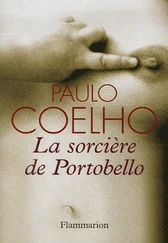Hilal is dancing with a young man her own age. She has had a little too much to drink and is in an ebullient mood. More than once, she has come over to tell me how much she regrets not bringing her violin. It really is a shame. The people here deserve to experience the charm and the spell cast by that great first violinist from one of Russia’s most respected conservatories.
THE FAT SINGER LEAVES THE STAGE, the band continues to play, and the audience starts jumping up and down, shouting, “Kalashnikov! Kalashnikov!” If Goran Bregovic’s music wasn’t so well known, anyone passing by outside would be convinced that this was some celebration party for terrorists.
Hilal and her friend are holding each other close, one step away from a kiss. My traveling companions are doubtless concerned that I’ll be upset by this. But I think it’s great. If only she would meet a single man who could make her happy and not interrupt her brilliant career, who could hold her in his arms at sunset and always light the sacred fire whenever she needed help. She deserves it.
“I can cure those marks on your body, you know,” Yao says, while we’re watching the people dancing. “The Chinese have a remedy for it.”
I know this isn’t possible.
“Oh, it’s not that bad. It comes and goes at ever more unpredictable intervals, but there’s no cure for nummular eczema.”
“In Chinese culture, we say that it occurs only in soldiers who were burned in battle during some previous incarnation.”
I smile. Yao looks at me and smiles back. I don’t know if he realizes what he’s saying. The marks date from that day in the dungeon. I remember seeing the same lesions on the hand of the French writer I had been in another past life. It’s called nummular eczema because the lesions are the same shape and size as a small Roman coin, or nummulus —or a burn mark left by a red-hot coal.
The music stops. It’s time we went to supper. I go over to Hilal and invite her partner to join us. He must be one of the readers chosen as guests for the night. Hilal looks at me in surprise.
“But you’ve already invited other people.”
“There’s always room for one more,” I say.
“Not always. Not everything in life is a long train with tickets available to all.”
The young man doesn’t quite understand this remark but clearly senses that something odd is going on. He explains that he has promised to have supper with his family. I decide to have a little fun.
“Have you read Mayakovsky?” I ask.
“No. His work is no longer compulsory reading in schools. He was a kind of state poet.”
He’s right, but I loved Mayakovsky’s work when I was his age and know a little about his life.
My publishers approach, fearful that I might be instigating a jealous brawl, but as so often in life, things are not what they seem.
“He fell in love with the wife of his publisher, a dancer,” I say teasingly. “They had a passionate love affair that was instrumental in making his poetry less political and more humane. Even though he always changed the names in his poems, the publisher knew perfectly well that Mayakovsky was writing about his wife but continued publishing his books anyway. She loved her husband and Mayakovsky. The solution they found was for the three of them to live together, and very happily, too.”
“Well, I love my husband and I love you!” jokes my publisher’s wife. “Why don’t you move to Russia?”
The young man gets the message.
“Is she your girlfriend?” he asks.
“I’ve been in love with her for at least five hundred years, but the answer is no, she’s as free as a bird. She’s a young woman with a brilliant career ahead of her, but she hasn’t yet met anyone who will treat her with the love and respect she deserves.”
“What rubbish. Do you really think I need someone to find me a husband?” says Hilal.
The young man explains again that he’s expected at home for supper, then thanks us and leaves. The other invited readers join us, and we set off to walk to the restaurant.
“Forgive me for saying this,” says Yao, as we cross the road, “but you acted quite wrongly just now toward Hilal, the young man, and yourself. With Hilal, because you failed to show due respect for the love she feels for you. With him, because he is one of your readers and felt he was being used. And with yourself, because you were motivated by pride and wanted to show him you were more important. It might have been forgivable if you had been acting out of jealousy, but you weren’t. You were simply showing your friends and me that you didn’t care, which isn’t true.”
I nod in agreement. Spiritual growth doesn’t always arrive hand in hand with wisdom.
“And another thing,” Yao goes on. “Mayakovsky was compulsory reading when I was at school, and everyone knows that his ménage à trois didn’t end happily at all. Mayakovsky shot himself in the head when he was only thirty-six.”
WE ARE FIVE HOURS AHEAD of Moscow time now. People there are just finishing lunch as we are starting our supper in Irkutsk. The city has its charm, but the atmosphere among us is tenser than it is on the train. Perhaps we’ve become used to our little world around the table, traveling toward a definite goal; each stop means a diversion from our chosen path.
Hilal is in a particularly foul mood after what happened at the party. My publisher is arguing furiously with someone on his cell phone, although Yao assures me that it’s simply a discussion about distribution problems. The three invited readers seem even shyer than usual.
We order some drinks. One of the readers warns us to be careful because we’re being served a mixture of Mongolian and Siberian vodka and will pay the price the next day if we overindulge. However, we all need a drink in order to relieve the tension. We have one glass, then another, and before the food has even arrived, we’ve already ordered a second bottle. In the end, the reader who warned us about the vodka decides that he doesn’t want to be the only sober person at the table and downs three glasses one after the other while we applaud. Everyone cheers up, apart from Hilal, who remains resolutely glum, despite drinking as much as the rest of us.
“This city’s a dreadful place,” says the reader who had abstained from the vodka until two minutes ago and whose eyes are already bloodshot. “You saw the street outside the restaurant.”
I had noticed a row of exquisite wood-built houses, a rarity these days. It had struck me as being rather like an open-air architectural museum.
“I’m not talking about the houses but about the street.”
True, the pavement wasn’t the best I’d ever seen and here and there you did catch a whiff of the sewers.
“You see, the mafia control this part of the city,” he goes on. “They want to buy up the whole area and build another of their hideous housing developments. The residents have so far refused to sell their land and their houses, and so the mafia won’t allow any improvements in the area. This city has been in existence for four hundred years; it received traders from China with open arms and was respected by dealers in diamonds, gold, and skins, but now the mafia is trying to move in and put a stop to all that, even though the government is fighting them.”
“Mafia” is a universal word. My publisher is still busy with his interminable phone call, my editor is complaining about the menu, and Hilal is pretending she’s on another planet, while Yao and I have suddenly noticed that a group of men at the next table have begun to take a close interest in our conversation.
Pure paranoia.
The reader continues to drink and complain. His two friends agree with everything he says. They moan about the government, about the condition of the roads, the state of the airport. These are all things we would say about our own cities, except that here, every complaint includes the word “mafia.” I try to change the subject and ask about the local shamans, which pleases Yao, who can see that even though I haven’t yet said yes or no, his request has not been forgotten. But the young men start talking about the “shaman mafia” and the “tourist guide mafia.” A third bottle of Mongolian-Siberian vodka has arrived, and everyone is now excitedly discussing politics—in English, so that I can understand, or so that the people at the other tables can’t. My publisher finally finishes his phone call and joins in the discussion, as does my editor, with equal gusto, while Hilal downs one glass of vodka after another. Only Yao remains completely sober, gazing off into the distance and trying to disguise his unease. I stopped after my third glass and have no intention of drinking more.
Читать дальше






